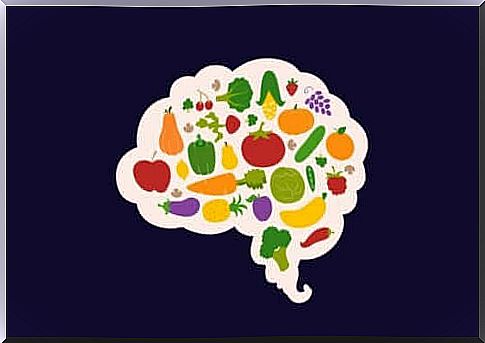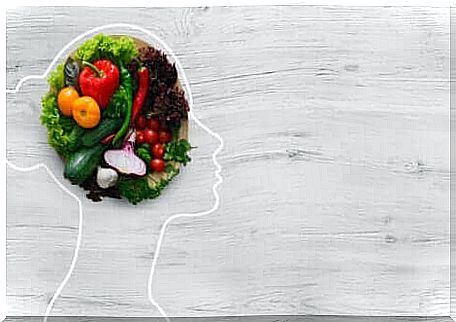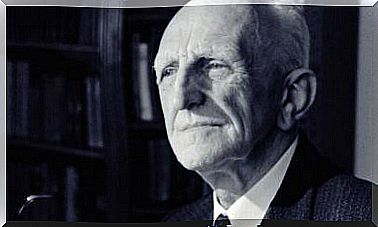Psycho-nutrition: The Relationship Between The Mind And Food

What is psycho-nutrition? It is science that studies the relationship between the mind and the food we eat. This work is a collaboration between dieticians and psychologists. Psycho-nutrition studies not only the relationship you have with food, but also the emotional patterns that are deeply embedded in your food choices.
Psycho-nutrition looks at different behaviors, such as stress eating. The goal is to help people make long-term changes in eating habits that will improve their overall quality of life.

The elements of psycho-nutrition
Psycho-nutrition includes more fields than just nutrition and psychology. Involving other professionals can improve your results and improve treatment on all fronts. Other professions that can potentially help are personal trainers, psychiatrists, speech therapists and teachers.
The characteristics of a psycho-nutrition-based intervention are as follows:
- Focused on eating habits and healthy habits in general. In other words, you will not only look at the food you eat, but also emotional, social and professional factors.
- You work with psychological variables related to unhealthy habits and to the development of new skills that help you commit to healthy habits.
- Having a positive self-image and accepting yourself are both important for psycho-nutrition to work. Fighting against your own body image can cause frustration.
- Consider the context in which you eat, along with other variables that facilitate or negatively affect a healthy diet.
- Help with decision making and identification of healthy products versus ultra-processed foods. Psycho-nutrition intervention usually also includes looking at deeply rooted social constructions, such as the slimming concept and the nutrition myths that inform people’s choices.
What psycho-nutrition is not
Psycho-nutrition is a collaboration between many different specialists. It is important to clarify this point because “psycho-nutritionists” do not exist. As we mentioned above, if you want help in this area, you will want to work with at least one psychologist and a nutritionist.
Psycho-nutrition is not just about studying the intake of certain foods in accordance with your mood. However, if they find in your evaluation that you have unhealthy coping strategies that are harmful in the long run, they will come up with a plan to deal with them.
Thus, one of the challenges in psycho-nutrition is to give people more tools and coping strategies to deal with their problems.
You will not see the results of psychological nutritional intervention overnight. This field deals with habits that are very ingrained and take time to redirect, change or eliminate. On the other hand, these are results that go far beyond weight loss. The ultimate goal is to positively change your relationship with food.

The work of a psychologist in this field
As you have seen, a psychologist’s work in this area goes beyond eating disorders. Other disorders can also play a role, such as anxiety derived from various problems such as body image problems.
The evaluation of the use of restrictive diets as ways to compensate for something else is only part of the psychologist’s work. Here are some of their other potential roles:
- Evaluation of eating habits and intake of certain foods in specific contexts.
- Education and awareness raising so that the patient chooses healthy food more often.
- Works with body image and coping strategies.
- Reducing demand and helping people have realistic expectations of how long it will take to achieve results.
- Help the individual to work with acceptance and change with special focus on the intake of food that is rejected.
- Emotional education and coping strategies.
- Develop awareness of the physical experiences associated with hunger and fullness.
In a psychologist nutrition consultation, emotions are especially important. The patient’s skills to be able to acquire certain healthy habits are also important.
At the same time, it is important to dispel certain myths that are deeply rooted in our society about food. The second focus is to help the patient commit to the changes.









